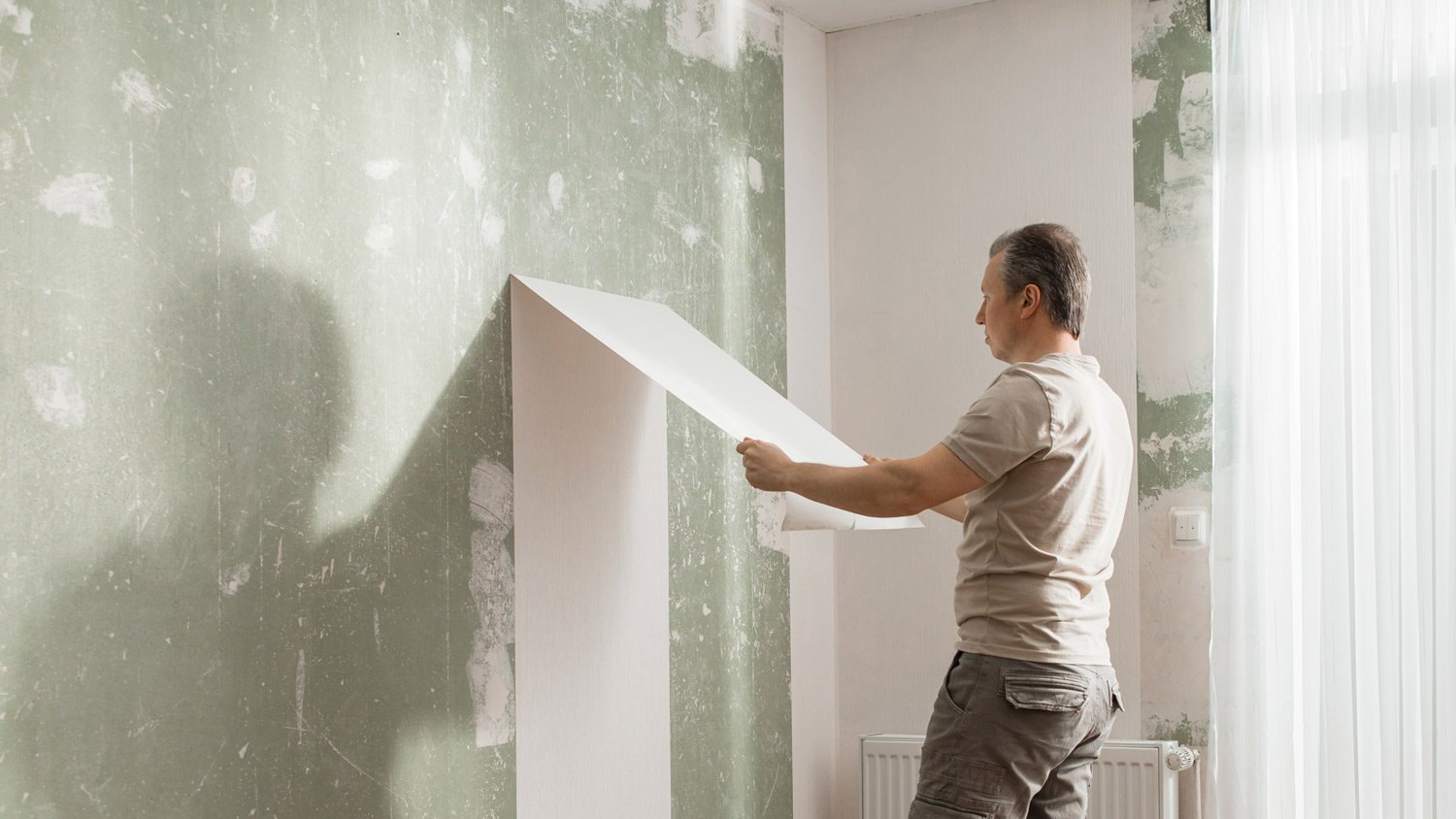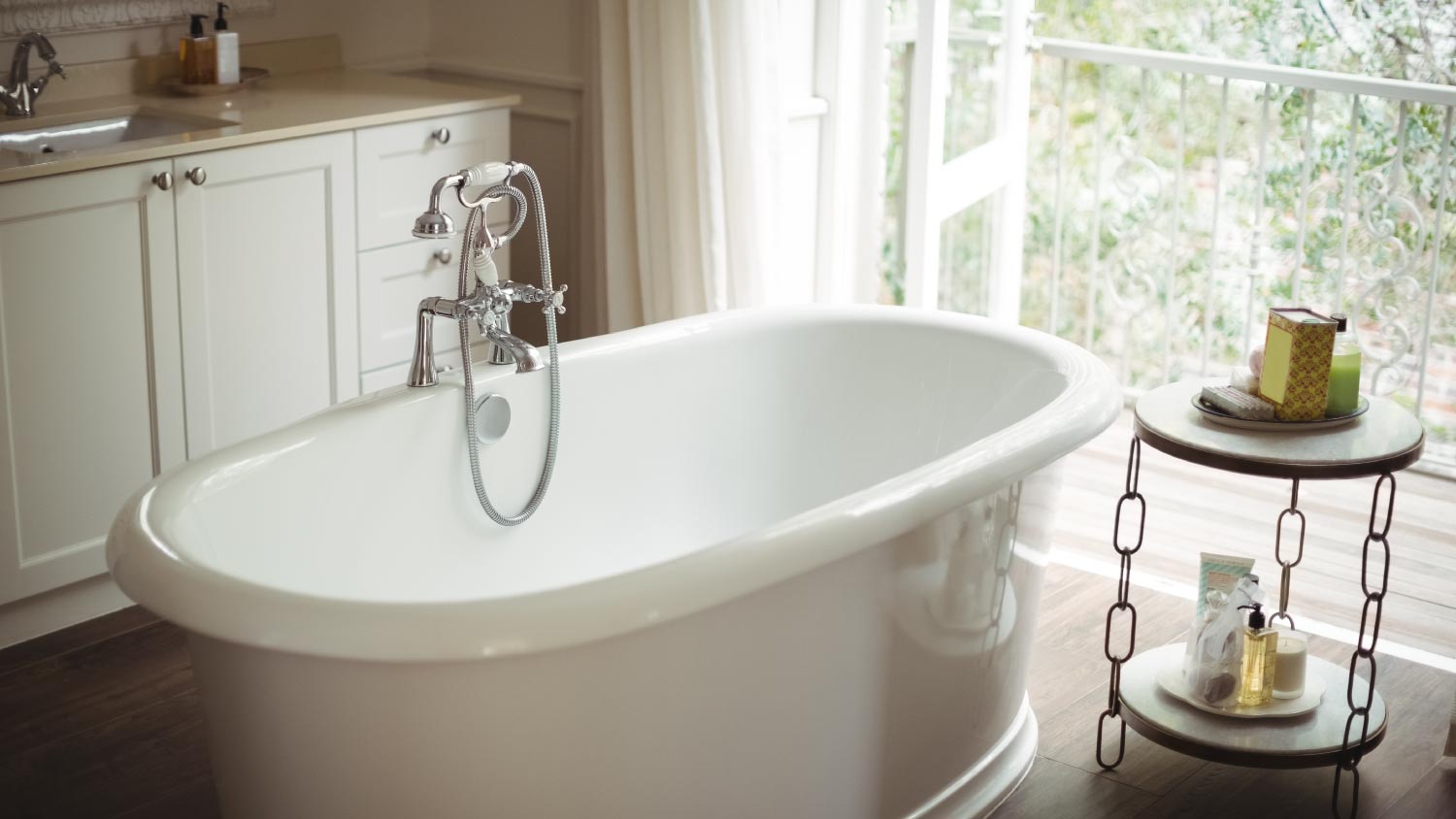
Bathroom cabinet costs can easily skyrocket. Take a look at these important cost factors and considerations to help you stay within your budget.
With some elbow grease and the right loan, your dream home can be yours


If you're looking to buy a home, several mortgage programs are specifically designed for fixer-uppers.
If you already own your home, refinancing your current mortgage can help you cover renovation costs.
Other financing options are available, but may not be as ideal as a mortgage.
A home renovation costs $19,500 to $88,000 on average.
You've found the home of your dreams, but there’s one problem—it needs a lot of TLC. You may wonder: can you add renovation costs to your mortgage? In some cases, you can, but you need to apply for the right type of mortgage. Here’s what to know about wrapping renovation costs into your mortgage and what other financing options are available.
Before you consider using a mortgage to cover the costs of a renovation, it's important to understand what counts as a renovation for financing. For the most part, the home you want to buy will need to have major repairs to qualify for a renovation mortgage. We're talking more than a new coat of paint or some new flooring. Homes that qualify for a renovation mortgage often need extensive work to improve their livability.
Usually, a professional home remodeling contractor will review and approve your project before you get the mortgage and buy the home.

Three types of renovation mortgages are available if you'd like to buy a fixer-upper and finance the cost of repairs with your mortgage. How each home improvement loan program works depends on the mortgage type.
The Federal Housing Administration insures two types of home renovation mortgages—the 203(k) and the Limited 203(k). Both allow you to roll the cost of renovations and the cost of buying the home into a single loan.
The mortgage amount is based on the estimated value of your home after repairs. The standard 203(k) mortgage program is meant for homes that need extensive renovations, while the Limited mortgage is for smaller, lower-cost repairs.
To qualify for an FHA 203(k) you need to be purchasing your primary residence. You also need to agree to work with a professional home remodeling contractor near you rather than DIY-ing the project yourself.
The Choice Renovation mortgage program from Freddie Mac also allows you to roll the cost of home repairs into your mortgage. It is similar to the 203(k) loan program but may allow for a smaller down payment and is open to investors as well as people shopping for their primary home.
The Homestyle Renovation Mortgage is Fannie Mae's renovation loan offering. It's very similar to the Choice Renovation and 203(k) loan programs. Like Choice Renovation loans, it's open to both investors and people buying a home to live in.
What about if you already own your home? Can you add renovation costs to an existing mortgage? Not quite, but you do have some options.
One option is to tap into your home's equity. You can apply for a home equity loan for a remodel, or open a home equity line of credit. Sometimes called a second mortgage, a home equity loan lets you borrow against what you've already paid down, with a fixed interest rate and a loan term of up to 30 years.
If you use the money obtained from a home equity loan or line of credit to pay for home improvements, you may be able to deduct the loan's interest when you file your taxes, just as you can deduct the interest paid on your primary mortgage.
Most mortgages last 15 or 30 years. A lot can change in that time, such as interest rates, your income, and the condition of your home. Refinancing your current mortgage can make sense, and may help you cover the costs of home renovations.
If you've built up enough equity in your home, you may qualify for a cash-out refinance, which lets you borrow more than you currently owe on your loan and use the extra cash to pay for renovations.
A home renovation mortgage, home equity loan, or refinance isn't the only way to cover the cost of home renovations. Other types of financing are available, such as a personal loan or a credit card.
However, mortgages often have lower interest rates than other loan options. Going the mortgage route may also help you lower your tax bill, if you can itemize and deduct your interest payments.
From average costs to expert advice, get all the answers you need to get your job done.

Bathroom cabinet costs can easily skyrocket. Take a look at these important cost factors and considerations to help you stay within your budget.

If your bathroom vanity top is damaged or cracked, removing and installing a new one can be an easy project to tackle. Learn the cost of replacing your vanity top.

Remodeling your bathroom can add significant value to your home. Your bathroom remodel cost in Columbus, OH will depend on size, fixtures, materials, labor, and other factors.

An updated bathtub can give a bathroom a whole new look. Find out how much it costs to replace a bathtub in Los Angeles, CA, including prices by type and labor costs.

Here's a look at the cost to build a garage with apartment on your property for a rental or in-law apartment.

DIY sink installation is a doozy but do-able for those with experience. Use this guide to learn how to install a bathroom sink in a few steps.